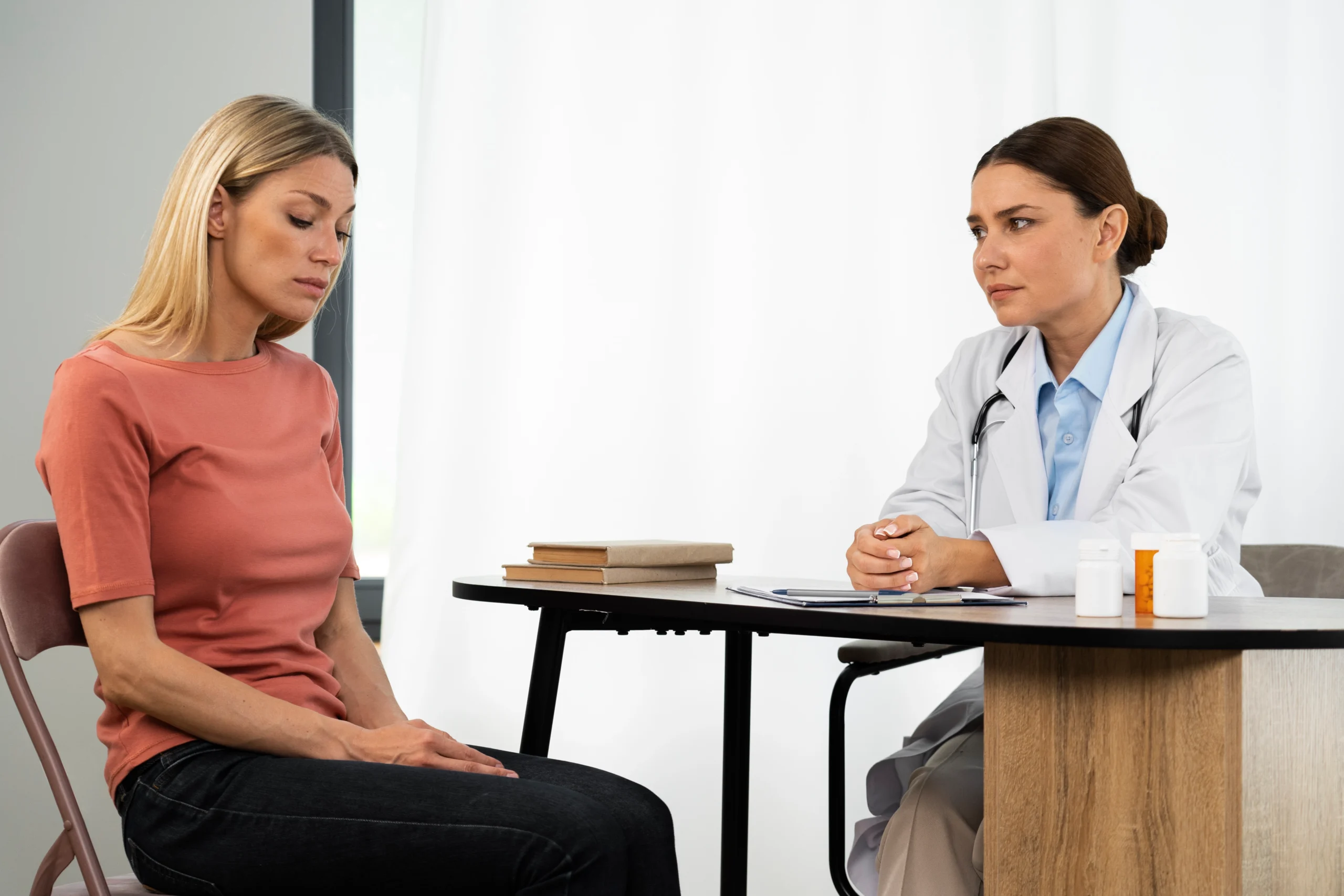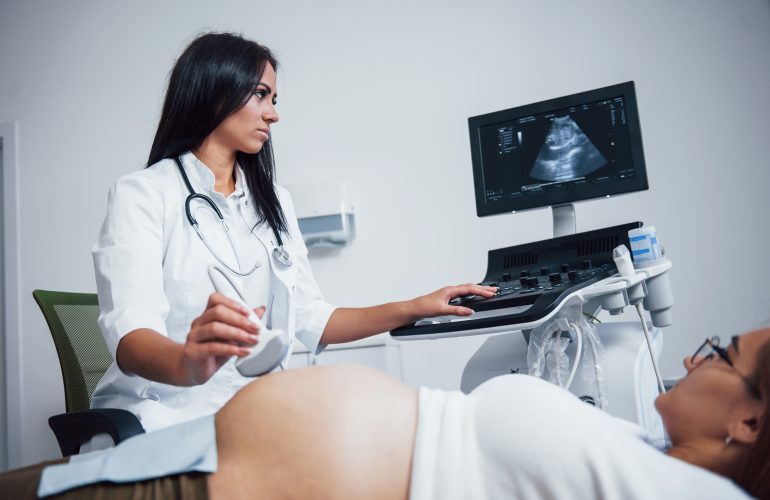Difference Between PCOD and PCOS: Causes, Symptoms, and Treatment
PCOD (Polycystic Ovarian Disease) and PCOS (Polycystic Ovary Syndrome) are two commonly used terms in women’s health. While both relate to the ovaries and hormonal imbalance, they are distinct conditions with different causes, effects, and health risks.
Despite the similarities, it’s important to know the difference between PCOD and PCOS to ensure timely diagnosis and appropriate treatment. In this blog, we’ll explore how each condition affects the body, highlight the major differences, and explain how they can be managed effectively.
Table of Contents
- What is PCOD?
- What is PCOS?
- Key Differences Between PCOD and PCOS
- What Causes PCOD and PCOS?
- Common Symptoms
- How Are PCOD and PCOS Diagnosed?
- Treatment Options for PCOD and PCOS
- Lifestyle and Dietary Changes
- Complications Linked to PCOD and PCOS
- When Should You Visit a Doctor?
- Frequently Asked Questions
- Conclusion
What is PCOD?
Polycystic Ovarian Disease (PCOD) is a condition in which a woman’s ovaries release immature or partially mature eggs, which over time develop into cysts. This can result in enlarged ovaries and hormonal imbalance.
Features of PCOD:
- Affects 1 in 3 women of reproductive age
- Linked with irregular ovulation
- May cause acne, hair thinning, and mild weight gain
- Fertility is generally maintained with minor support
- Easily managed with lifestyle modifications
What is PCOS?
Polycystic Ovary Syndrome (PCOS) is a more severe metabolic and hormonal disorder. It causes the ovaries to produce higher-than-normal levels of male hormones, which can disrupt ovulation completely.
Features of PCOS:
- Affects about 1 in 10 women of reproductive age
- Associated with infertility, obesity, and insulin resistance
- Can lead to long-term health problems like type 2 diabetes and heart disease
- More challenging to manage without medical assistance
- Requires a combination of medication, diet, and regular follow-up
Key Differences Between PCOD and PCOS
Although the terms are often confused, there are clear distinctions between them. Here’s a comparison table to highlight the difference between PCOD and PCOS:
| Aspect | PCOD | PCOS |
| Full Form | Polycystic Ovarian Disease | Polycystic Ovary Syndrome |
| Type | Ovarian disorder | Metabolic syndrome |
| Ovulation | Delayed or irregular | Absent in most cases |
| Fertility | Usually preserved | Often reduced |
| Hormonal Imbalance | Mild | Severe (high androgens) |
| Weight Gain | May or may not occur | Common |
| Severity | Less severe | More severe |
| Long-term Risks | Low | High (diabetes, heart disease) |
| Reversibility | High with lifestyle changes | Requires medical support |
What Causes PCOD and PCOS?
Although both conditions are linked to hormones and lifestyle, their causes and risk factors vary.
Common Causes:
- Hormonal imbalance
- Genetics
- Inflammation
- Poor lifestyle and diet
PCOD Triggers:
- High stress levels
- Irregular eating habits
- Lack of physical activity
- Weight fluctuations
PCOS Triggers:
- Insulin resistance
- High levels of androgens (male hormones)
- Genetic factors
- Obesity
Common Symptoms
Recognizing the signs early helps in starting treatment at the right time. While some symptoms overlap, others are more specific.
PCOD Symptoms:
- Irregular periods
- Acne
- Oily skin
- Mild hair thinning
- Slight weight gain
- Ovarian cysts detected via ultrasound
PCOS Symptoms:
- Missed or very delayed periods
- Severe acne and oily skin
- Unwanted facial and body hair (hirsutism)
- Male-pattern baldness
- Difficulty in conceiving
- Insulin resistance
- Dark skin patches (especially neck and armpits)
How Are PCOD and PCOS Diagnosed?
At Aayush Hospital, our gynecology team follows a thorough process to detect PCOD and PCOS through clinical evaluation, lab tests, and imaging.
Diagnostic Methods:
- Ultrasound to check for ovarian cysts
- Blood tests to measure hormones (LH, FSH, testosterone)
- Insulin and glucose tests
- Thyroid and prolactin levels
- Rotterdam Criteria for PCOS diagnosis
Rotterdam Criteria: PCOS is diagnosed if at least 2 of the following are present:
- Irregular or absent ovulation
- Increased androgen levels
- Polycystic ovaries on scan
Treatment Options for PCOD and PCOS
PCOD Treatment:
- Lifestyle changes: Diet, weight control, exercise
- Hormonal pills to regulate periods
- Ovulation-inducing drugs for conception
PCOS Treatment:
- Metformin for insulin sensitivity
- Anti-androgen medications to reduce hair growth and acne
- Fertility treatments such as IVF or ovulation stimulation
- Weight loss programs under medical guidance
Lifestyle and Dietary Changes
Lifestyle modifications play a crucial role in managing both PCOD and PCOS effectively.
Dietary Tips:
- Eat complex carbohydrates (whole grains, oats)
- Avoid sugary and processed foods
- Include fresh fruits, vegetables, and lean protein
- Drink plenty of water
- Reduce caffeine and alcohol intake
Fitness Tips:
- Regular physical activity (30–45 minutes/day)
- Mix cardio with yoga or strength training
- Maintain a healthy BMI
Stress Management:
- Practice yoga and meditation
- Get 7–8 hours of sleep
- Seek therapy or counseling when needed
Complications Linked to PCOD and PCOS
Ignoring the symptoms or delaying treatment can result in health complications.
PCOD-Related Complications:
- Irregular periods
- Ovarian enlargement
- Mood swings
- Acne and skin issues
PCOS-Related Complications:
- Infertility
- Type 2 diabetes
- Obstructive sleep apnea
- Endometrial cancer (if left untreated)
- Hypertension and heart disease
When Should You Visit a Doctor?
Consult a gynecologist at Aayush Hospital if you notice any of the following:
- Irregular, missed, or painful periods
- Sudden weight gain or difficulty losing weight
- Excess facial hair or scalp hair loss
- Difficulty in conceiving after a year of trying
- Persistent acne or mood changes
Early medical intervention can prevent complications and improve fertility outcomes.
Frequently Asked Questions
1. What is the major difference between PCOD and PCOS?
PCOD is primarily a hormonal condition that can be reversed with lifestyle changes, while PCOS is a more serious metabolic syndrome that requires a combination of medical and lifestyle treatment.
2. Can a woman with PCOS or PCOD get pregnant naturally?
Yes. Women with PCOD often conceive naturally. PCOS may require treatment to induce ovulation, but many women successfully conceive with the right approach.
3. Is PCOS more dangerous than PCOD?
Yes. PCOS can lead to serious complications like type 2 diabetes, infertility, and cardiovascular disease if not treated properly.
4. Can a normal-weight woman have PCOS?
Yes. PCOS can affect both overweight and lean women. Hormonal imbalances, not just weight, are responsible.
5. Can diet alone cure PCOD or PCOS?
While diet helps significantly, it may not completely cure either condition. A combination of diet, exercise, and in some cases, medication, offers the best results.
6. Are PCOD and PCOS genetic?
Both conditions may run in families. A family history of diabetes or hormonal disorders can increase the risk.
Conclusion
Although PCOD and PCOS may seem similar, they are distinct conditions with different impacts on health, fertility, and lifestyle. PCOD is more common and manageable with lifestyle changes, while PCOS is a more complex hormonal and metabolic disorder that needs medical attention.
At Aayush Hospital, our team of experienced gynecologists provides personalized diagnosis, treatment, and support to women dealing with PCOD or PCOS. If you’re facing irregular periods, fertility concerns, or other related symptoms, don’t wait. Schedule your consultation today.


